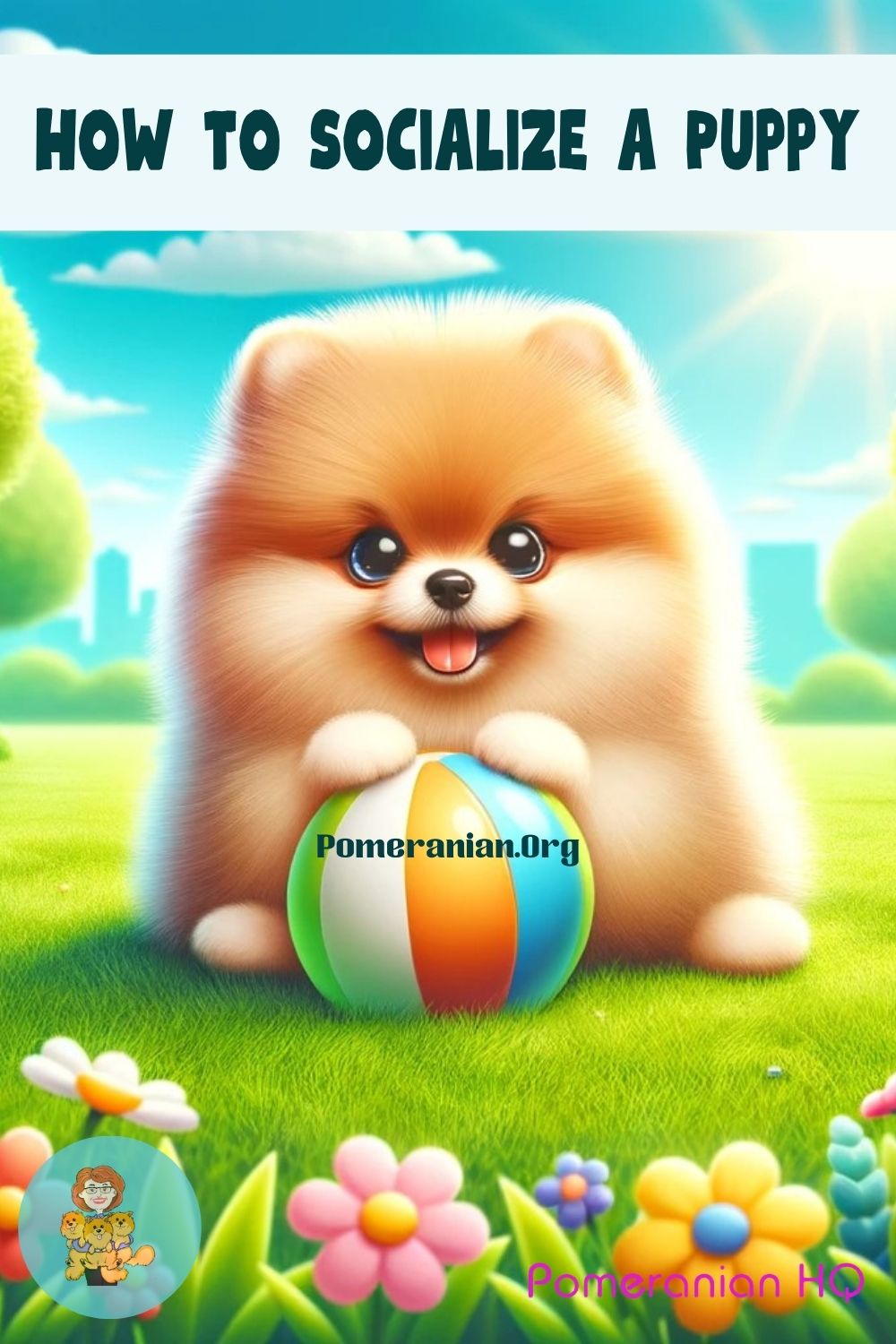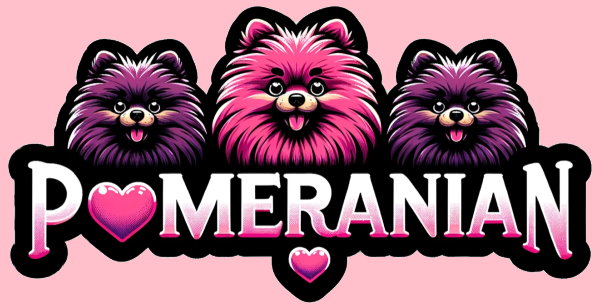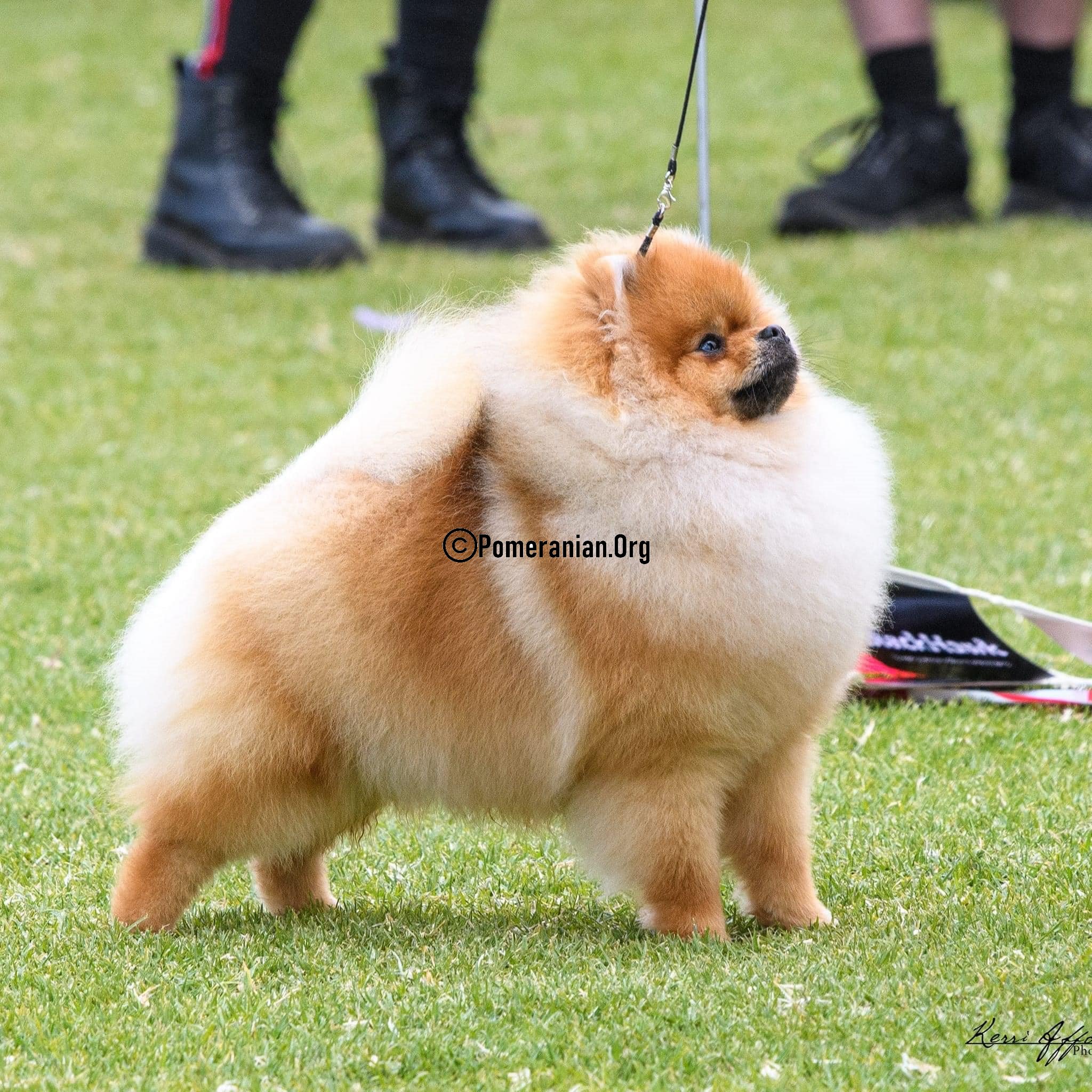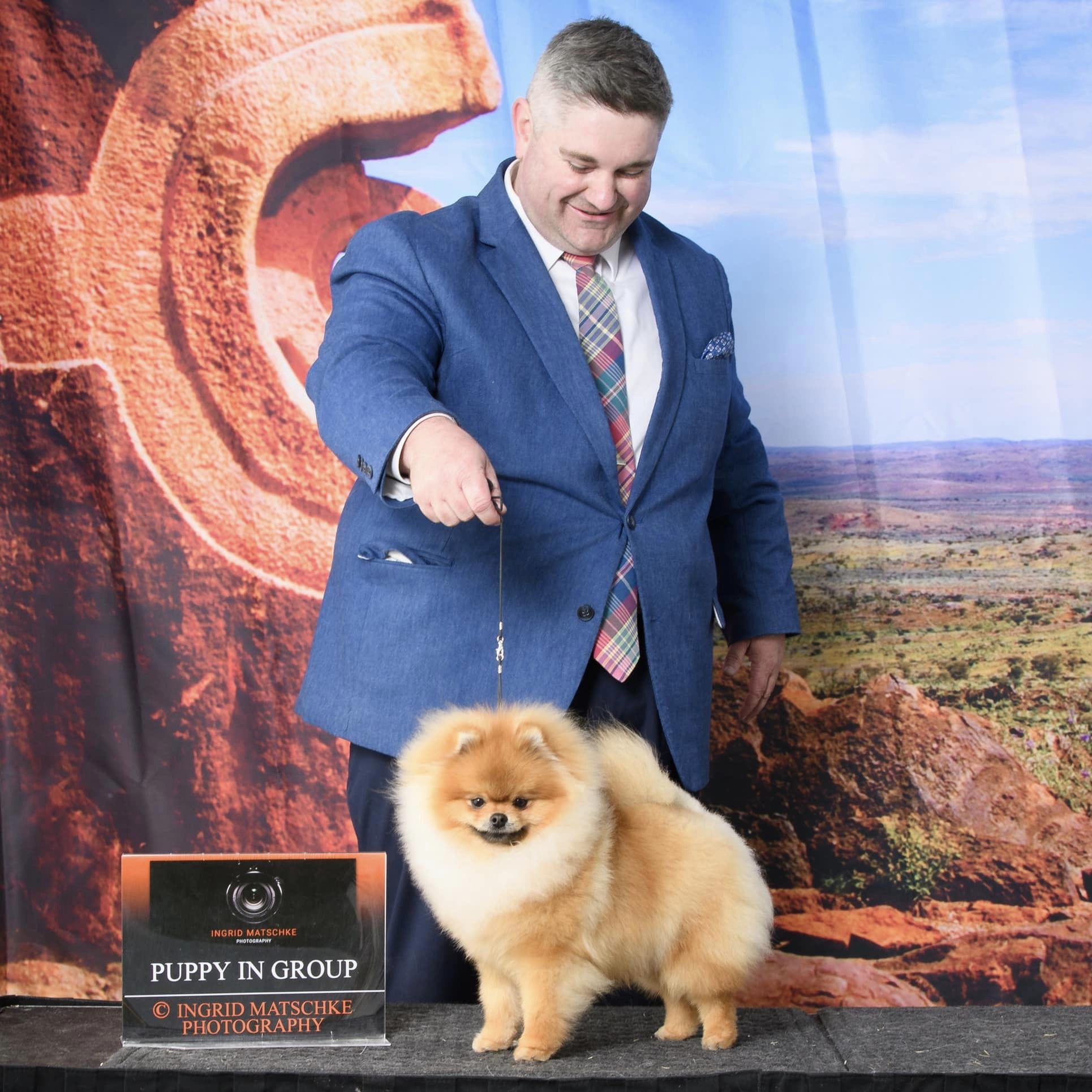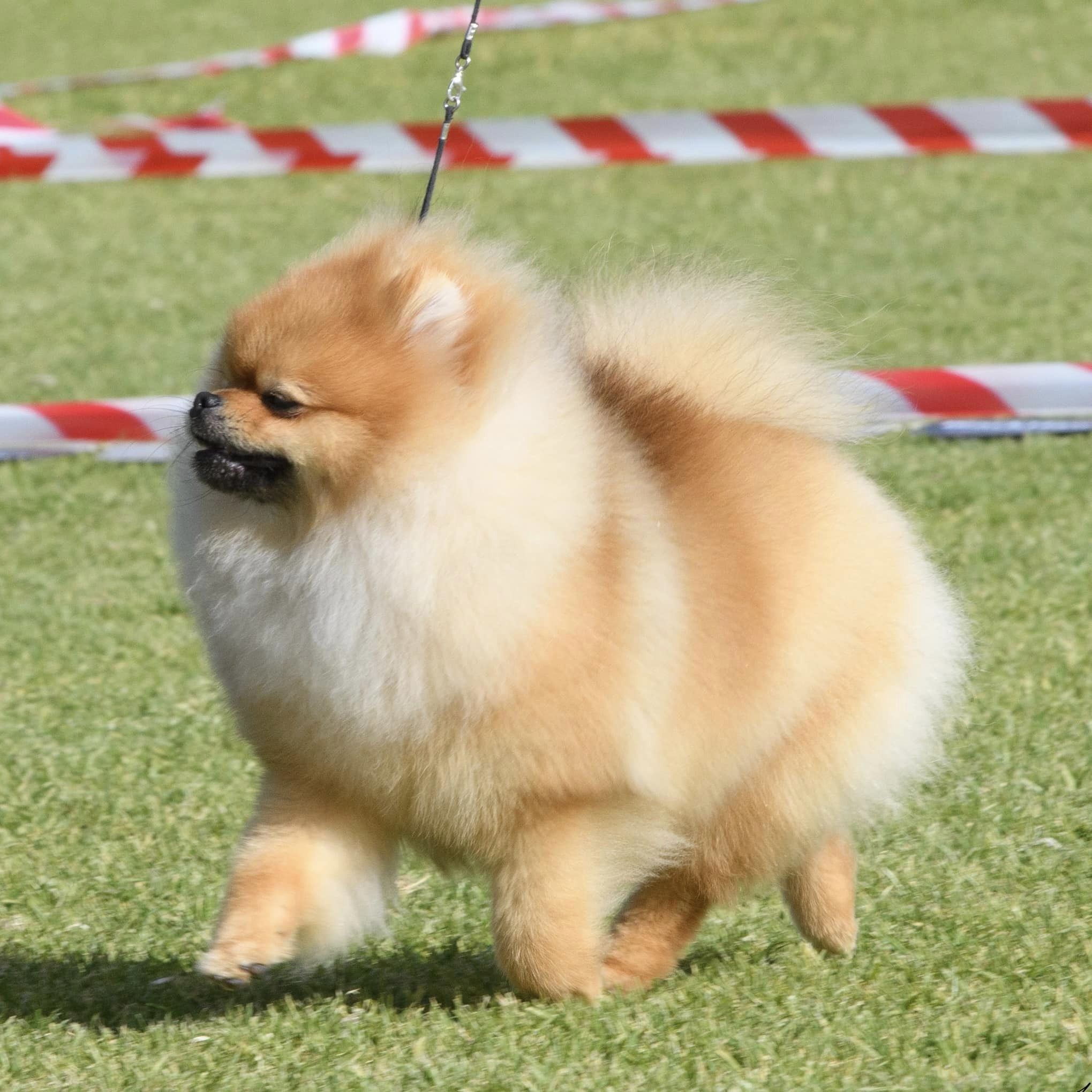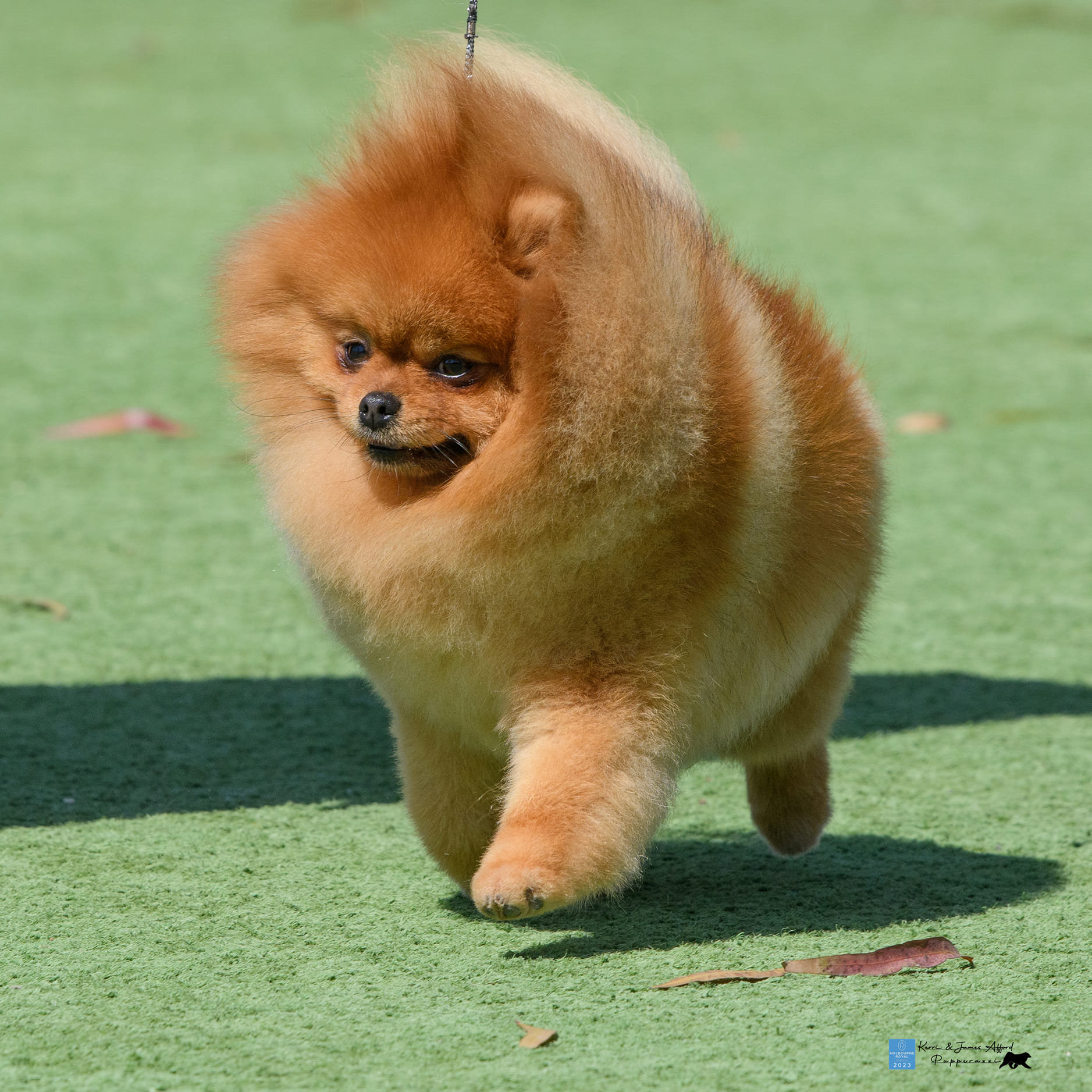Last Updated on 27/11/2023 by Denise Leo. Post first published on November 27, 2023.
Ready to learn the secret of how to socialize a puppy? This article will show you how to make that puppy the best socialized pup around! We’ll prepare your furry pal for any situation with tips on introducing them to other animals and people.
It would help to consider many things before getting a dog on board in your family. The most important of them is puppy socialization.
Socializing the puppy is dauntlessly the first and foremost thing you must learn after bringing a puppy to your family. The key makes your pups confident, content, and a great companion.
Why Socializing Your Puppy is Important?
Socialization is essential as it lets your puppy acclimate to various views, noises, and smells. A well-socialized puppy is aware of different circumstances and doesn’t get aggressive in times of fear.
Different pet owners also notice that if you don’t socialize your puppy correctly, your pup faces several behavioral issues in the future, which can be life-threatening at times. Hence, socializing is very important for your puppy as it helps them learn to behave in certain conditions and situations.
Socializing a puppy is crucial to their development, ensuring they grow into confident and well-adjusted dogs. The best way to achieve this is through creating positive experiences and associations during their formative weeks.
A key aspect of the socialization process involves positively introducing your puppy to various scenarios. This includes meeting different people, encountering other animals, especially well-mannered older dogs, and experiencing environments like car rides, parks, and busy streets.
Exposing your puppy to these new experiences should be done gradually and in a way that ensures positive interactions. For example, when introducing your puppy to older dogs, choose dogs known for their calm and friendly demeanor. These positive associations with older dogs can significantly aid your puppy’s learning and social skills. Similarly, exposing them to different people ensures each interaction is controlled and pleasant. This helps build their confidence and teaches them to be comfortable around strangers.
A good time to start this process is as early as they begin exploring their surroundings. The good news is that puppies are naturally curious and open to new experiences, making it an ideal time to introduce them to various aspects of the world. Start with short trips to fun destinations when taking them on car rides. This gets them used to traveling, and associates car rides with positive outcomes.
Socializing a puppy, particularly in the first few weeks of age, is vital for their development into well-adjusted dogs. This early socialization period, typically between 8 and 16 weeks of age, is when young puppies are most receptive to learning and adapting to their environment. For new puppy owners, understanding the importance of this phase is crucial.
During these formative months of life, exposing your young puppy to a variety of experiences in a positive manner is key to preventing future behavioral problems. Observing your puppy’s body language during these interactions is essential, ensuring they remain comfortable and engaged.
Positive experiences during these early stages can significantly influence a puppy’s behavior, making a healthy, well-socialized dog less likely to develop fear or aggression. Whether meeting new people, encountering different animals, or exploring varied environments, each experience should be approached with care and sensitivity. Early socialization, done right, sets the foundation for a puppy to grow into a friendly, confident, and well-adjusted dog.
Remember, socialization aims to help your puppy develop into a well-rounded and confident dog. Always approach each new experience with patience and encouragement, rewarding them for their bravery and curiosity. With consistent and positive efforts, your puppy will grow to be a friendly and adaptable companion.
Here, we have carved out details that help you find why puppy socialization is important and how to socialize your puppy correctly.
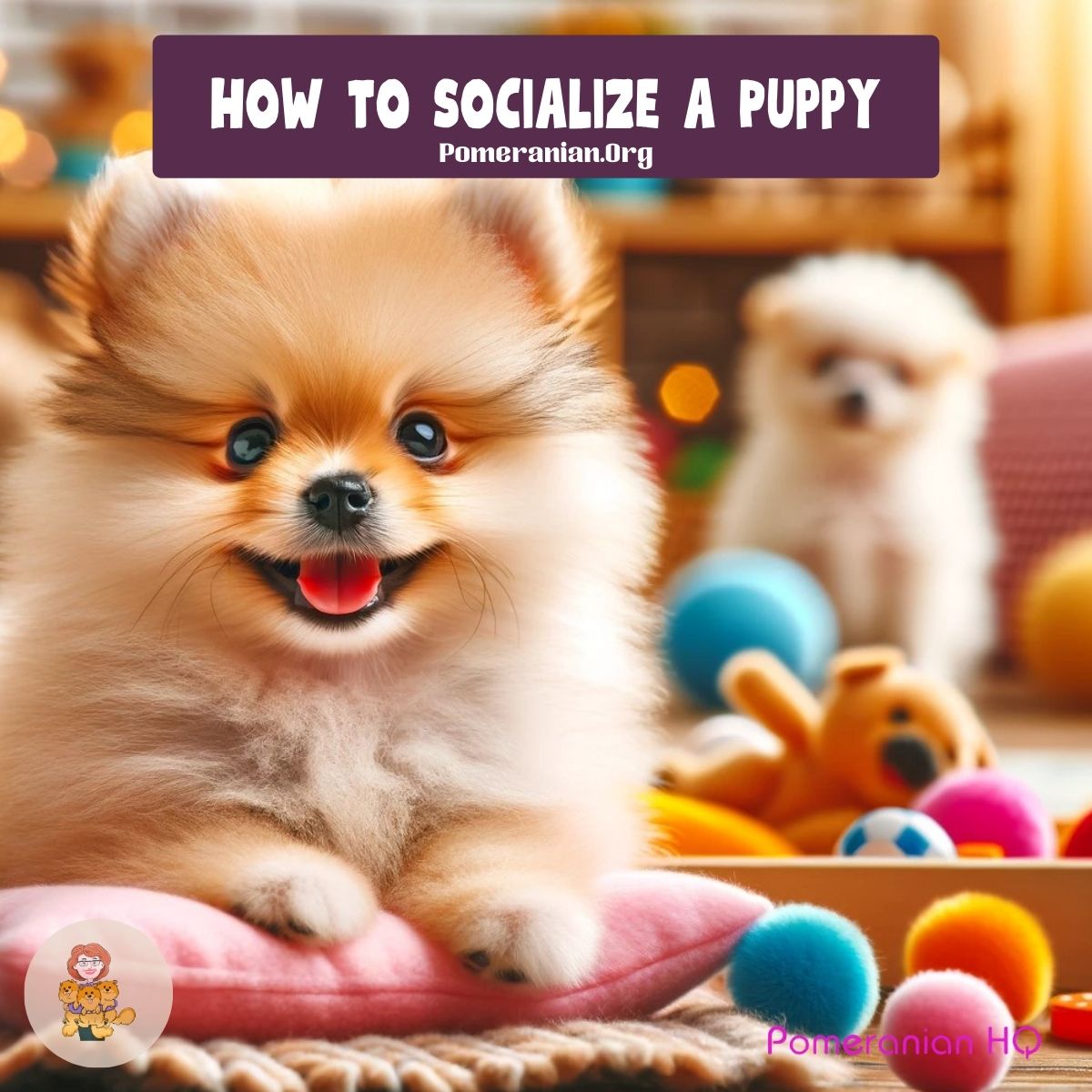
How to Properly Socialize a Puppy: Top Tips
- Socializing a puppy is an essential part of being a responsible pet owner. It helps the puppy to better adjust to different environments, people, and other animals, as well as helps them learn how to behave in social situations. Here are some tips for how to properly socialize your puppy:
- Start early – Puppies should begin socializing as soon as possible, ideally before 16 weeks. This is the best time for them to learn how to interact with other people, animals, and new environments. Make sure that all experiences are positive during this period to ensure that they develop good habits and behaviors.
- Supervised introduction – When introducing your puppy to new people or animals, do it in a controlled environment with supervision. This allows you to watch how your puppy behaves and intervene if needed.
- Positive reinforcement – Always reward good behavior with treats or praise to encourage them to repeat it. If your pup is anxious or scared, speak gently to them and give lots of positive reinforcement when they are brave and approach the new situation.
- No punishment – Punishment should always be avoided when socializing puppies, as this can hurt how they interact with others in the future.
- Be patient – Puppies learn to be around other people and animals, so give them plenty of time and patience.
- Exposure – Expose your puppy to various people, animals, and environments calmly and at their own pace. Ensure they have brief but regular exposure to new things until they become comfortable with them.
- Watch how your puppy behaves – Pay attention to how it reacts in different situations and interacts with other animals and people. This will help you to gauge how much socialization they need to become well-socialized.
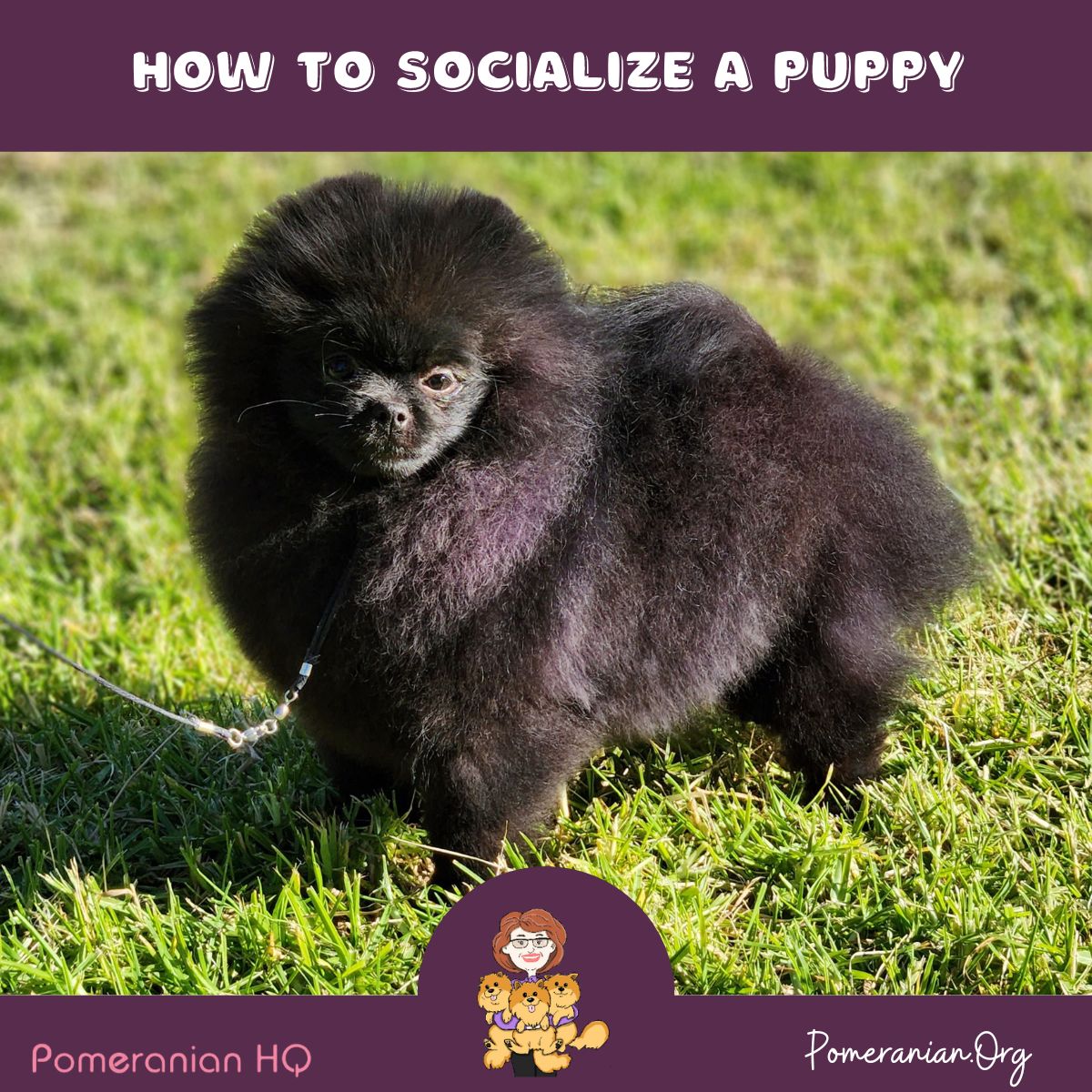
What is the Right Age for Socializing Puppies?
If you are a new owner, you should know that the initial three months of your puppy’s life are the most critical period for socialization, as it’s the time that shapes the dog’s overall personality. During this period, the puppies learn how to deal with new experiences.
Newborn pups don’t see and hear entirely until they are 2 to 4 weeks old and are born deaf with their eyelids closed. However, these puppies initially navigate by smelling for the initial few weeks; they use smell as their primary sense.
In the first two weeks, these canines sense through smell and touch, so you must handle your puppy immediately with gentleness so they can get comfortable with you.
Once your puppy develops his hearing and seeing abilities, you should familiarize him with various sounds and noises, like clinging pots and vacuum cleaners, as it significantly aids his neurological development.
Four to eight weeks is the time when puppies start growing stronger by seeking adventures and coordination. It’s when they are up for new experiences as they start playing with the things around them and investigating the objects in their environment.
Let them play with challenging obstacles, squeaky toys, and puppy pens to teach them to play alone during this period.
During 8 to 16 months, puppies learn that new people and animals are not dangerous; they initially get scared and fearful of strangers and unfamiliar faces, but gradually, when you socialize them, they realize how to deal with all such conditions.
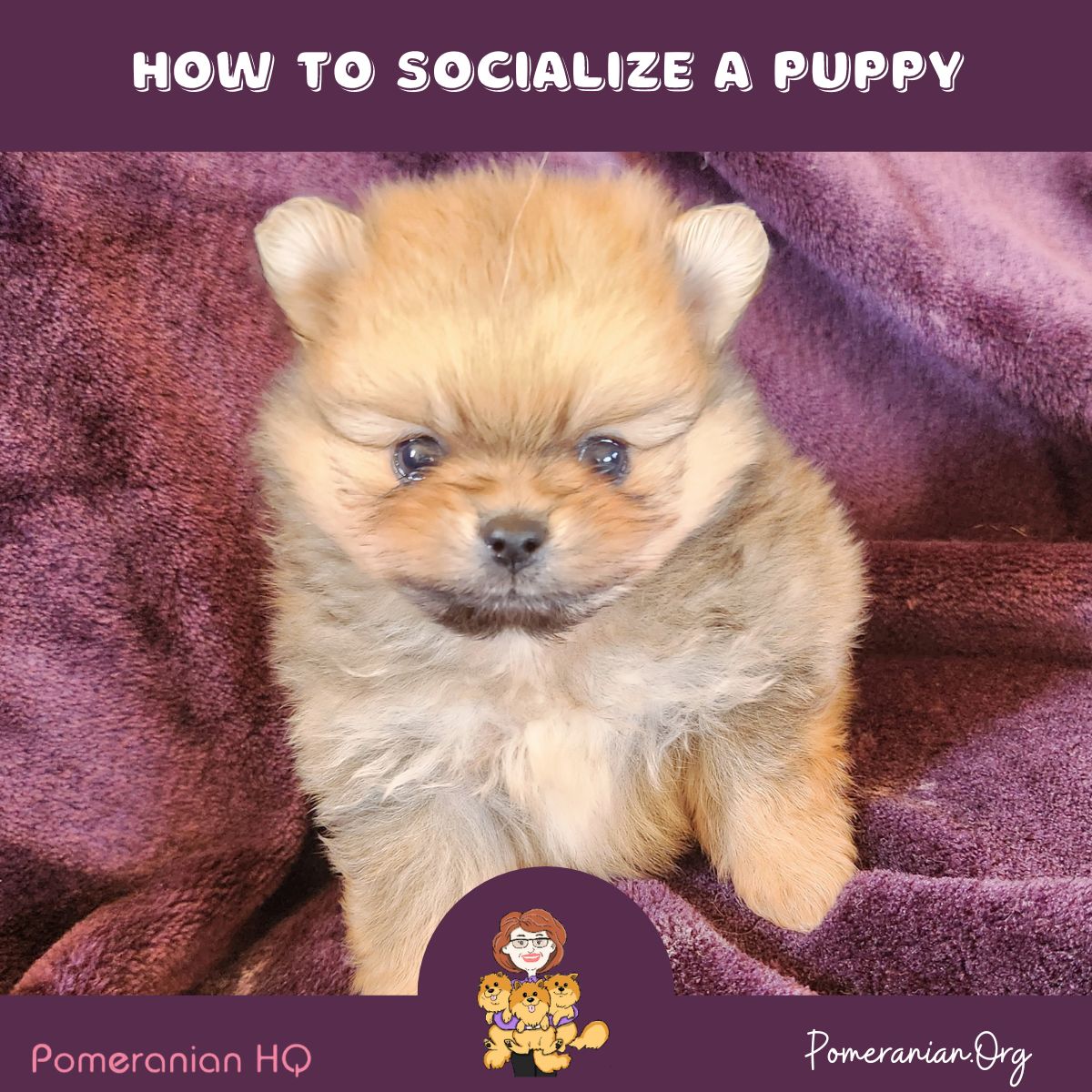
How to Properly Socialize Your Puppy?
Isn’t socialization a lifelong process for all of us? But with puppies, the early foundation is the main chunk. The first three months of their lives shape their whole personality.
There are many processes involved in a puppy’s socialization, from introducing him to new places to taking him to well-run classes; here are a few things you can do to socialize your pup correctly.
Start with Your Home and Family:
So the moment you take your puppy, you should help him learn new things till he reaches three months. For a newborn puppy, everything he encounters is new, unusual, and strange, so familiarize him with new sounds, faces, smells, voices, and views; this will help him learn different textures, noises, and smells.
Your house is undoubtedly your pup’s best class; introduce him to mirrors, brooms, TV, water, balloons, and whatnot. We have different sounds, like cars, lawnmowers, dishwashers, vacuum cleaners, and music to make him familiar. Let him deal with grass, carpets, puddles, sand, and tiles to teach him different textures. These things will help him learn new experiences every day.
To help your puppy experience new things, always bring them out of their comfort zone by introducing them to people and new faces. Involve your entire family in this socializing process so that your puppy can get acclimatized with all of them quickly.
Reward Them with Sweet Treats:
During this period, you ensure that everything your puppy encounters is positive so that he doesn’t get a negative image of the world around him. Always reward your puppy with some soft chewable treat for his behavior to encourage him to learn positivity.
These treats and praises will help them associate positive feelings with their exposures and encounters. Dogs are very good at reading emotions, so never show nervousness when introducing your puppy to big dogs or other pets, as it will automatically make them fearful.
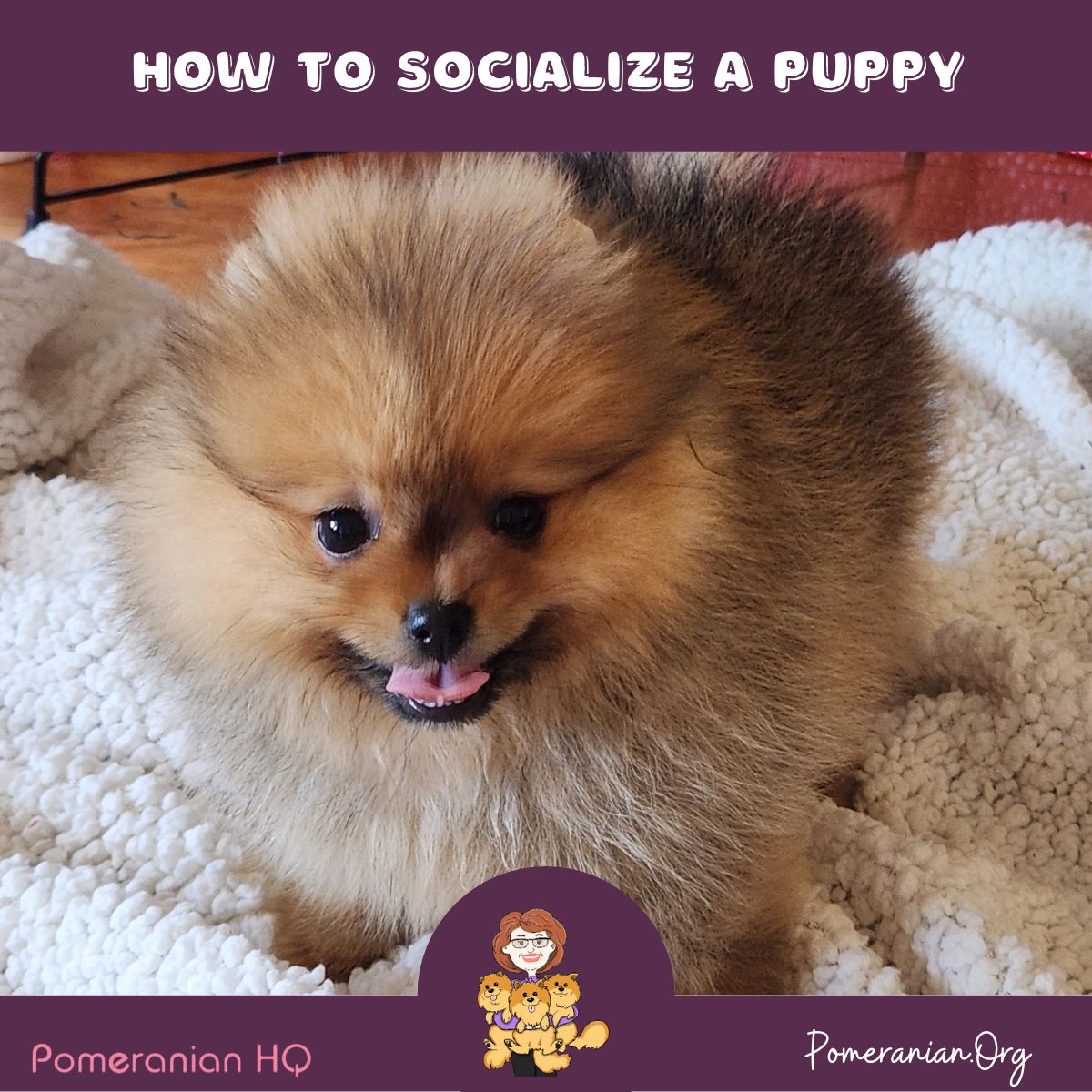
Introduce Your Puppy to Public Places:
Once you notice that your puppy has become comfortable with the household, it’s time to introduce him to more significant and newer experiences.
Take them on puppy playdates with your friend’s canine so that they adapt to new situations. You can also take them to dog parks to expose them to other canines and conditions.
Public places are full of new experiences and lessons; make sure your puppy takes positive lessons from there to be termed as a well-trained pup.
Never Rush for Results:
As we said, it’s a long process. Take your time introducing your puppy to new experiences and people daily; try getting him proverbial with the family members first and then gradually let him face strangers.
Similarly, don’t plan new things every other day but let him get comfortable with the household sounds and things and then move him for different experiences; this will keep him calm and relaxed. An overwhelming introduction to places and people can get you bad results, so never rush for results.
Take your Pup to Puppy classes:
If you want your puppy to learn commands and obedience skills, you can take them to puppy classes. You can enroll your puppy in the classes once you have introduced your puppy to the first vaccines.
These classes play a significant role in your puppy’s socialization; they teach them obedience skills and are a great way to socialize with other puppies. The best thing about these classes is that your puppy gets exposed to other canines and new people, reducing the fear of meeting strangers from your pup.
Some skilled trainers train the puppies to learn new skills and experiences that benefit their development.
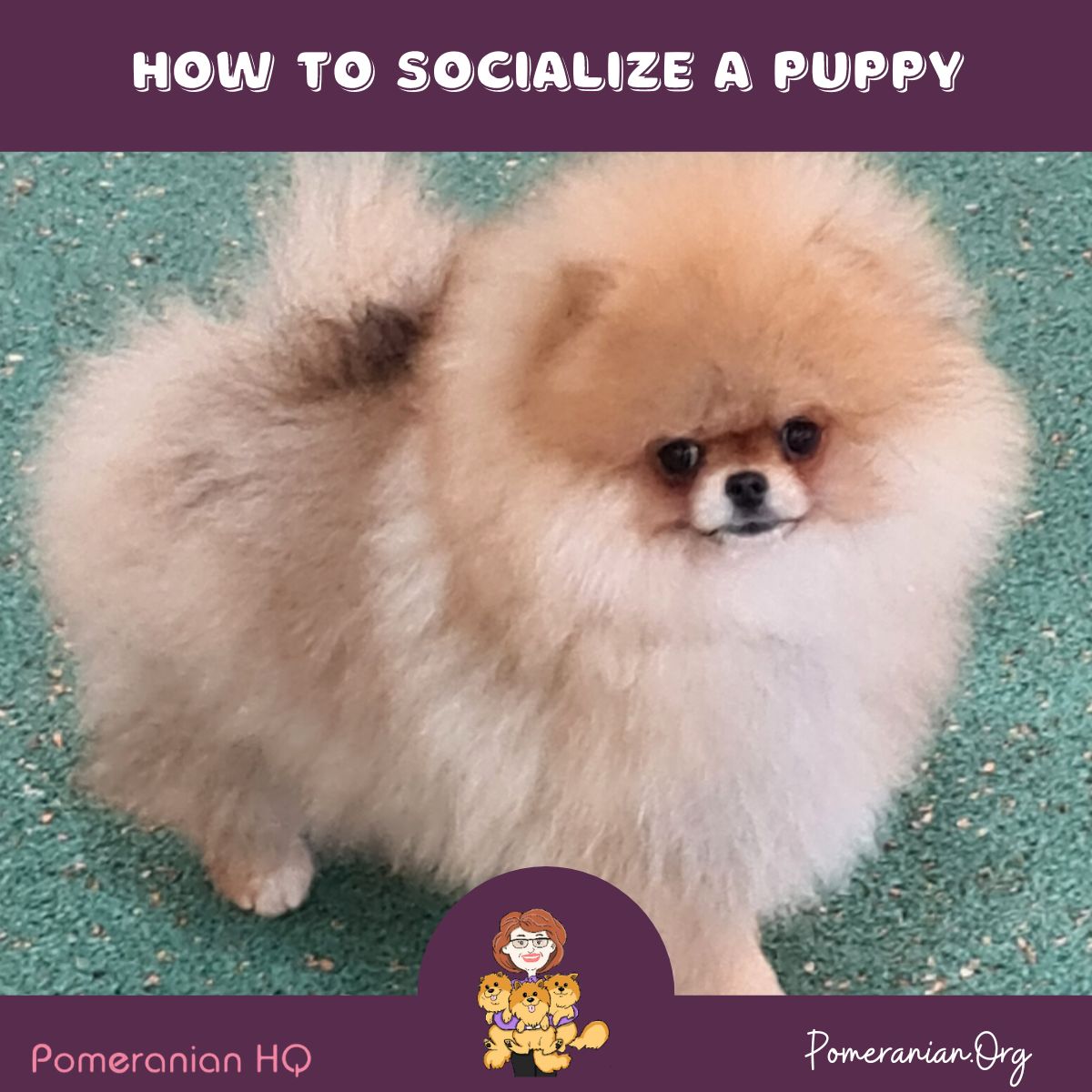
What Happens If Your Puppy Isn’t Socialized Properly?
Puppies that don’t get proper socialization turn their fears into aggression, which harms them. When they reach adulthood, these puppies go through behavioral issues that become hazardous for their lives.
They develop fearful behavior toward strangers, which makes them excessively bark, lunge, snarl, and snap. The unsocialized puppies also become extremely fearful and stressed by the presence of other dogs and start hiding and yawning to avoid contact.
Your puppy may develop a few things if you don’t socialize with him at the right age.
- Your puppy would get frightened of meeting new people and experiences and develop anxiety while approaching new conditions.
- Your pup would become reactive and would turn his fear into aggression. Under-socialized pups are unaware of stressful conditions and usually don’t know how to react to such scenarios.
- If a puppy isn’t introduced to socialization, it becomes hard to handle, and you would find it difficult to groom him. These puppies find brushing, teeth cleaning, and nail-clipping as torturing devices.
- Under-socialized puppies become unadventurous; they find life outside their comfort zone frightening and scared of adventures.
- If a puppy is not exposed to dogs of different sizes and breeds early, he becomes anxious and uneasy around other dogs.
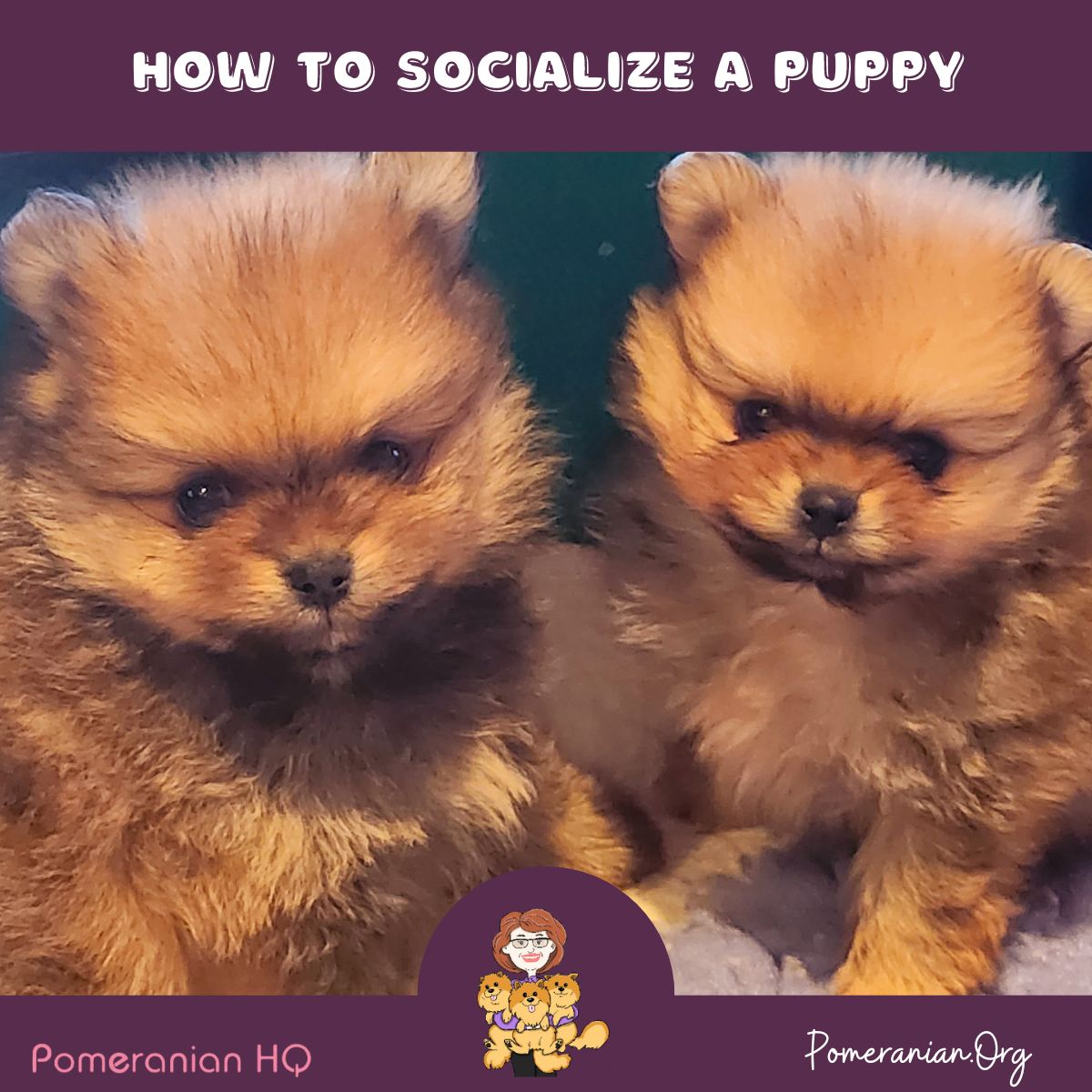
How to Socialize Your Puppy Before Vaccination?
Socializing your puppy is as important as veterinary care. Dogs’ owners usually get skeptical about whether it’s safe for their puppies to go out before they are fully vaccinated.
You can introduce your puppy to different socialization classes at 7 to 8 weeks, as it’s the same time you should start their vaccines. Puppies get the final round of their Vaccination when they are 16 weeks old; until then, they are at risk of contracting various infectious diseases.
But it would help if you did not stop them from socializing as it’s certainly the right age for them to learn new experiences and how to react comfortably in unknown conditions. So it’s recommended that you don’t introduce them to places you know are disastrous for puppies.
Generally, veterinarians recommend getting the first round of vaccines and deworming of your puppy a week before you start socializing to decrease the risk of exposure to various infections. The first vaccine puppies receive DHLPP (distemper, hepatitis, leptospirosis, parainfluenza, and parvo).
The vaccine will reduce the chances of infections and prevent the spread of contagious diseases to others. Avoid places like dog parks before your puppy has completed its vaccinations. A dog park is not one of the safest places for small dogs.
Ways to Socialize Puppy Before Vaccination:
Start with your house; let your pup play in the backyard with other pets you know so that he can get familiar with them. You can also take your puppy to visit a friend or meet other dogs, go shopping, and even go to your workplace; this would help him familiarize himself with different environments and situations.
The best place for socialization is public parks and your neighborhood; you can take your puppy on their stroller to parks and nearby areas to introduce them to new sights and sounds; through a stroller, you can avoid getting infections.
You can also arrange a welcome party, so your puppy meets all your friends and family in the safest atmosphere, like your house. All you need to do is never let them be unattended before the final vaccination so that they don’t make contact with germs and viruses.
How Can You Plan Socialization Outings?
Short trips to shopping or grocery stores open a wide range of interactions your puppy doesn’t get to see in his personal space. Try to socialize with your puppy in different outing spaces so that he develops a positive feeling about things he doesn’t see at home.
- You can take them to home improvement stores for a long walk.
- Take them for lunch at a café to make them get the aura.
- Take them to the shopping mall and stroll through the automatic doors to make him learn.
- Take them to farms so your puppy can smell the odors of other animals.
- Our houses are usually calm and silent; take your pup to a noisy street to show him the hustle and bustle.
- Take him to a nearby train station to introduce him to this transportation.
How do you properly socialize your puppy with other dogs?
Puppyhood is when your puppy needs proper socialization; if you don’t socialize during this stage, then chances are that it will always lunge, bark, or cringe when seeing a stranger or new dog.
Proper socialization in the initial three months of your puppy’s life is crucial; if you teach them properly, they will know to prevent aggression and fear while around other dogs. The best you can do is introduce your puppy to another canine when they are as young as 6 to 7 weeks old so that they can associate with other dogs and not get stressed around them.
Once your puppy has received his first vaccines, start socializing them with other healthy and vaccinated dogs in the family and friends. It would be best to have discerning eyes to make sound judgments about whom your puppy should meet.
Your puppy is in the early learning stage when he is learning manners and etiquette, so make sure he meets beneficial dogs and doesn’t teach him rough play. It would help to consider a few things when making your puppy socialize with other dogs.
- Initially, introduce your dogs to those canines that are well-mannered, obedient, friendly, and well-trained so that your puppy enjoys their company and adopts good habits from them.
- If you know a well-behaved dog around, you take them for a ride with your puppy so that you can instill good behavior in your puppy when he is around that dog.
- You can also schedule play-dates with other dog owners twice or thrice a week; more opportunities with another canine will help your puppy socialize better.
- Always allow your puppy to play with other dogs under your supervision, as dogs sometimes get annoyed with little pups, which can scare your puppy.
- Please ensure the first dog your puppy meets enjoys his energy and excitement; this will help him build a good rapport with other dogs.
- Don’t approach any random dog for your puppy’s meet-up once you know his personality, as it can be alarming for your pup’s safety.
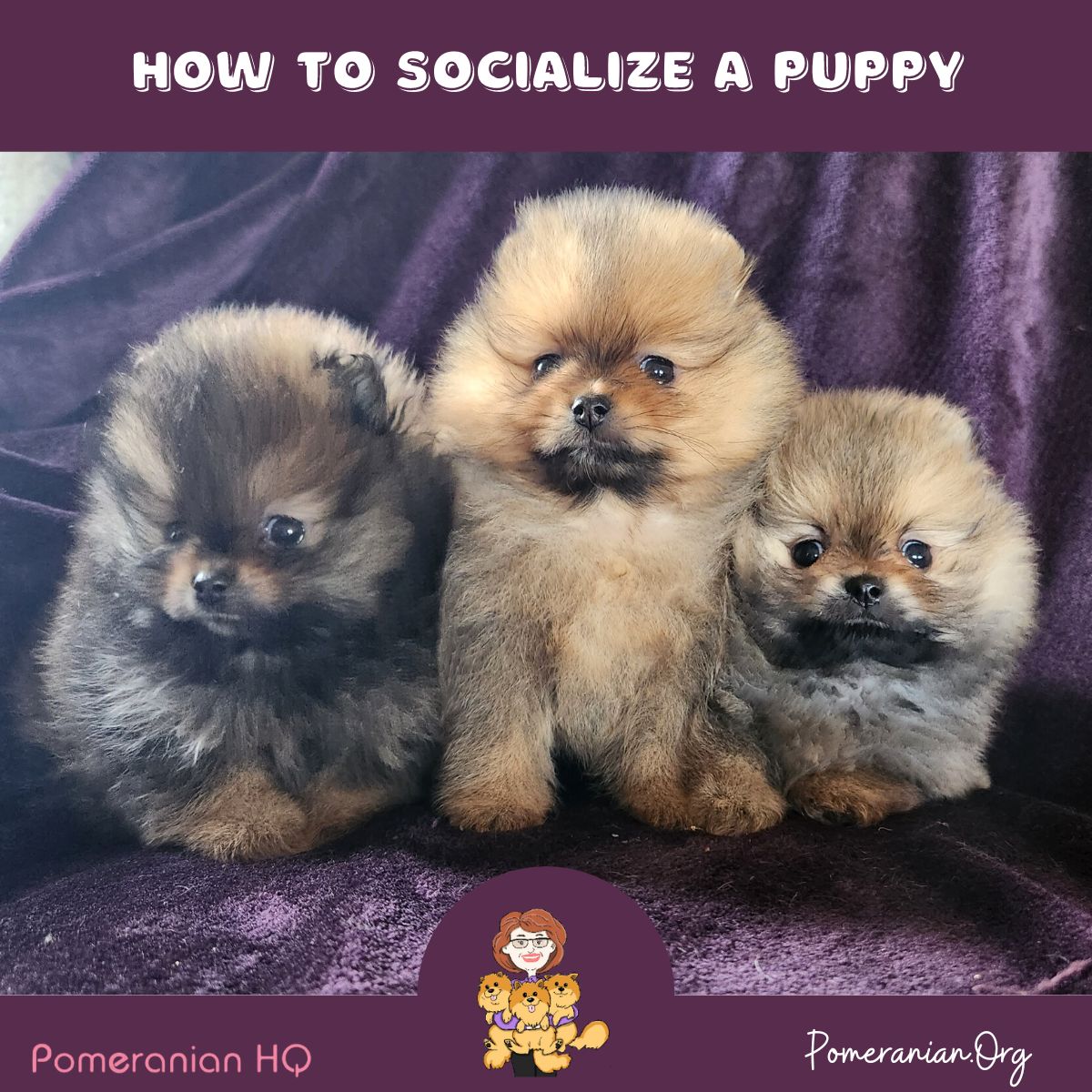
Final Words on How to Socialize a Puppy
You need to know these things when you bring a puppy home; if you socialize your puppy early, it will be easier to teach him new things later.
Socializing your puppy is also significant for your puppy’s health since more puppies die due to behavior issues than infectious diseases. So, after you get a puppy from the breeder, you must follow the procedure above to socialize with your little one.
No one knows your pup better than you; you know his limits, liking, and capacity. Hence, you decide how you will take him on this journey. Take baby steps in this process; he will slowly and gradually learn.
Puppy socialization takes time, but the results are extremely gratifying and pleasant, making you believe you did the right job. You have to be very cautious during this period.
It would be best if you kept a complete watch on your puppy when taking him to new places and adventures. If you notice any discomfort in his body, like if he growls, makes awkward postures, and starts aggressive staring, you must calmly divert his attention towards you or take them back home.
We hope this piece helps you find the details you were looking for in socializing your puppy and also helps you play an active role in his growth and development.
Copyright Pomeranian.org. All Rights Reserved.
References and Further Reading:
[1] Official Standard of the Pomeranian (AKC). American Kennel Club, 2011.
[2] English Kennel Club Pomeranian Breed Standard, 2017.
[3] Denise Leo, The Pomeranian Handbook.
[4] Milo G. Denlinger “The Complete Pomeranian.”
[5] Kimbering Pomeranians “1891-1991”.
[6] William Taplin’s “The Sportsman’s Cabinet.”
[7] E. Parker “The Popular Pomeranian.”
[8] Lilla Ives “Show Pomeranians.”
